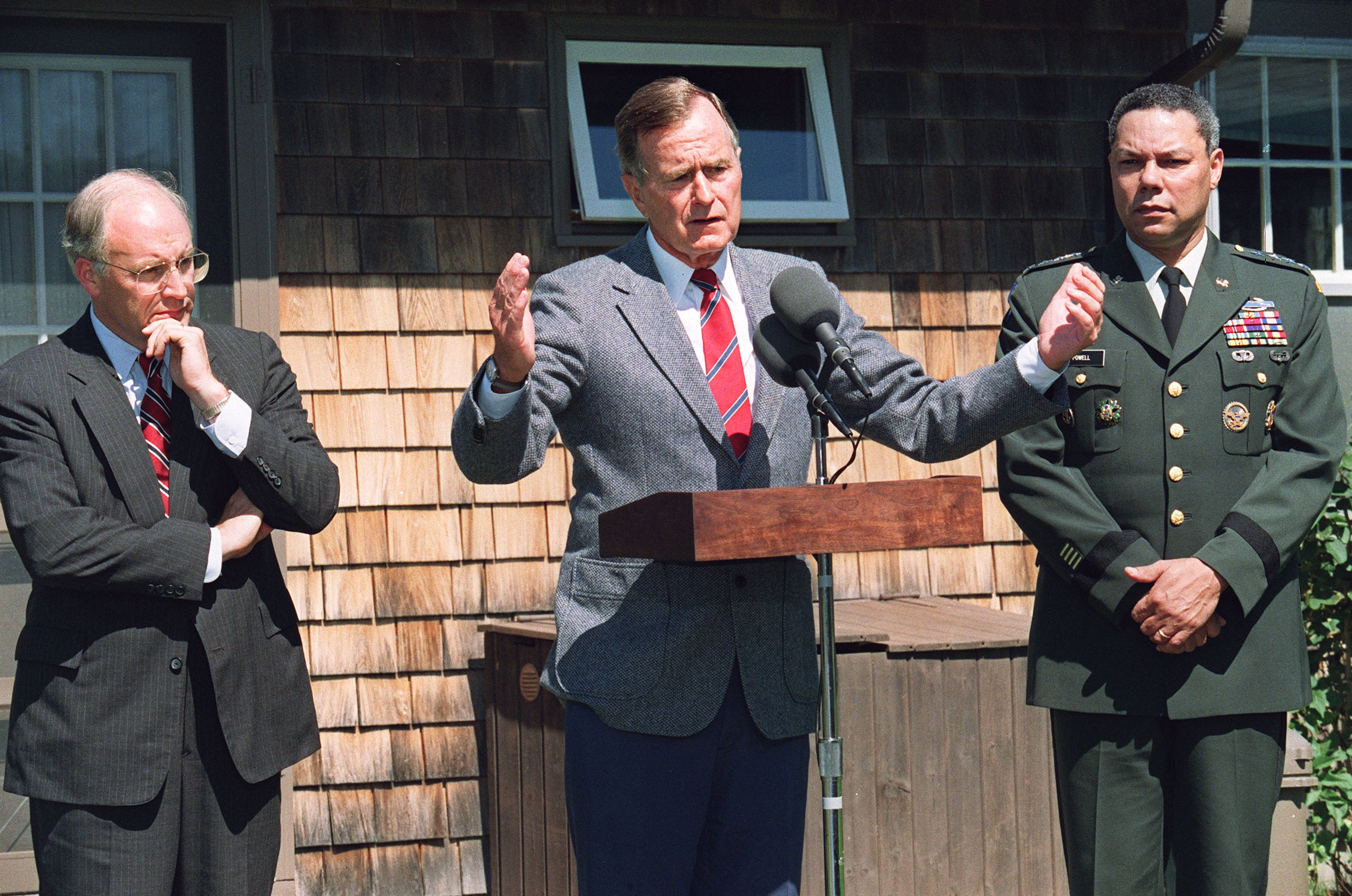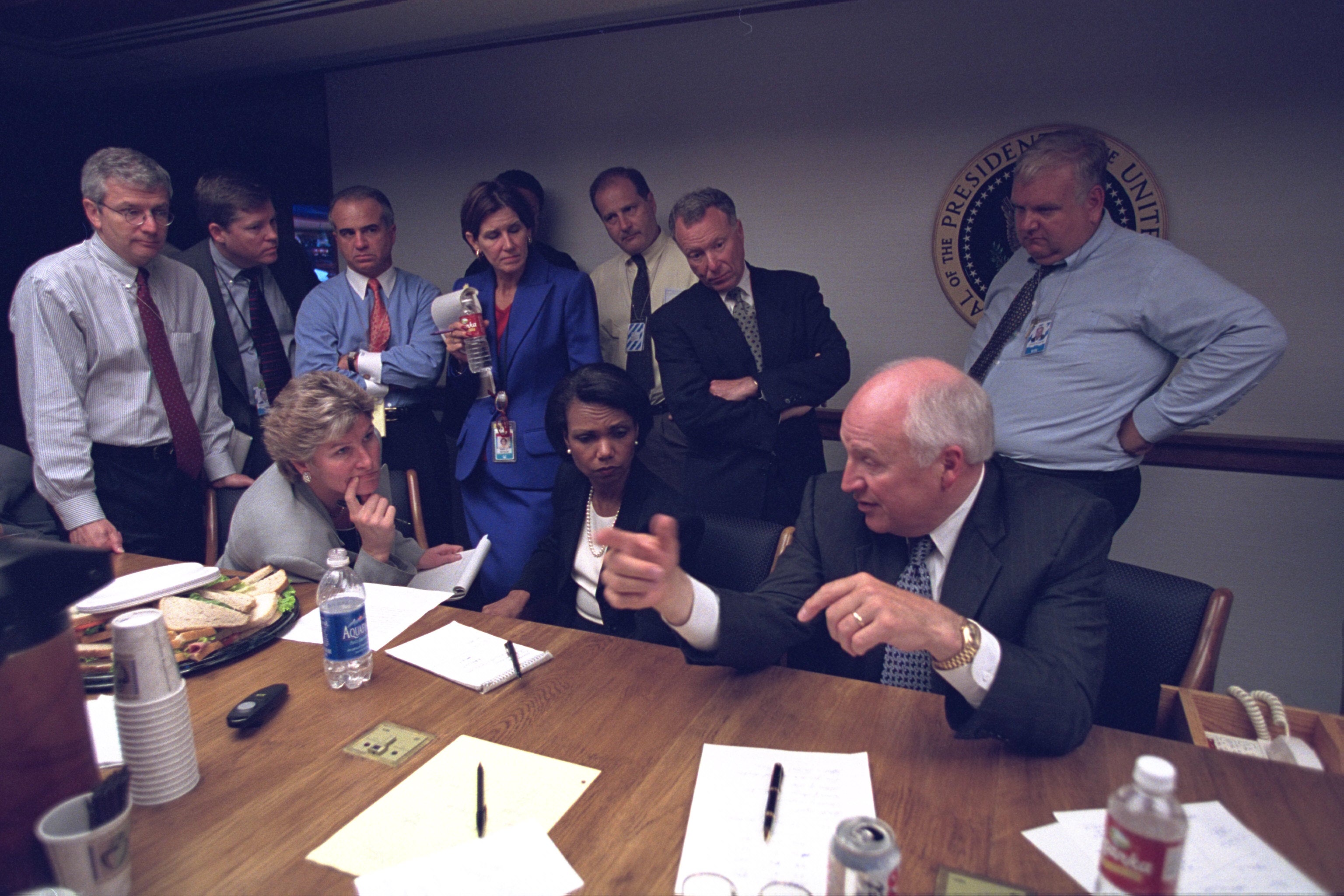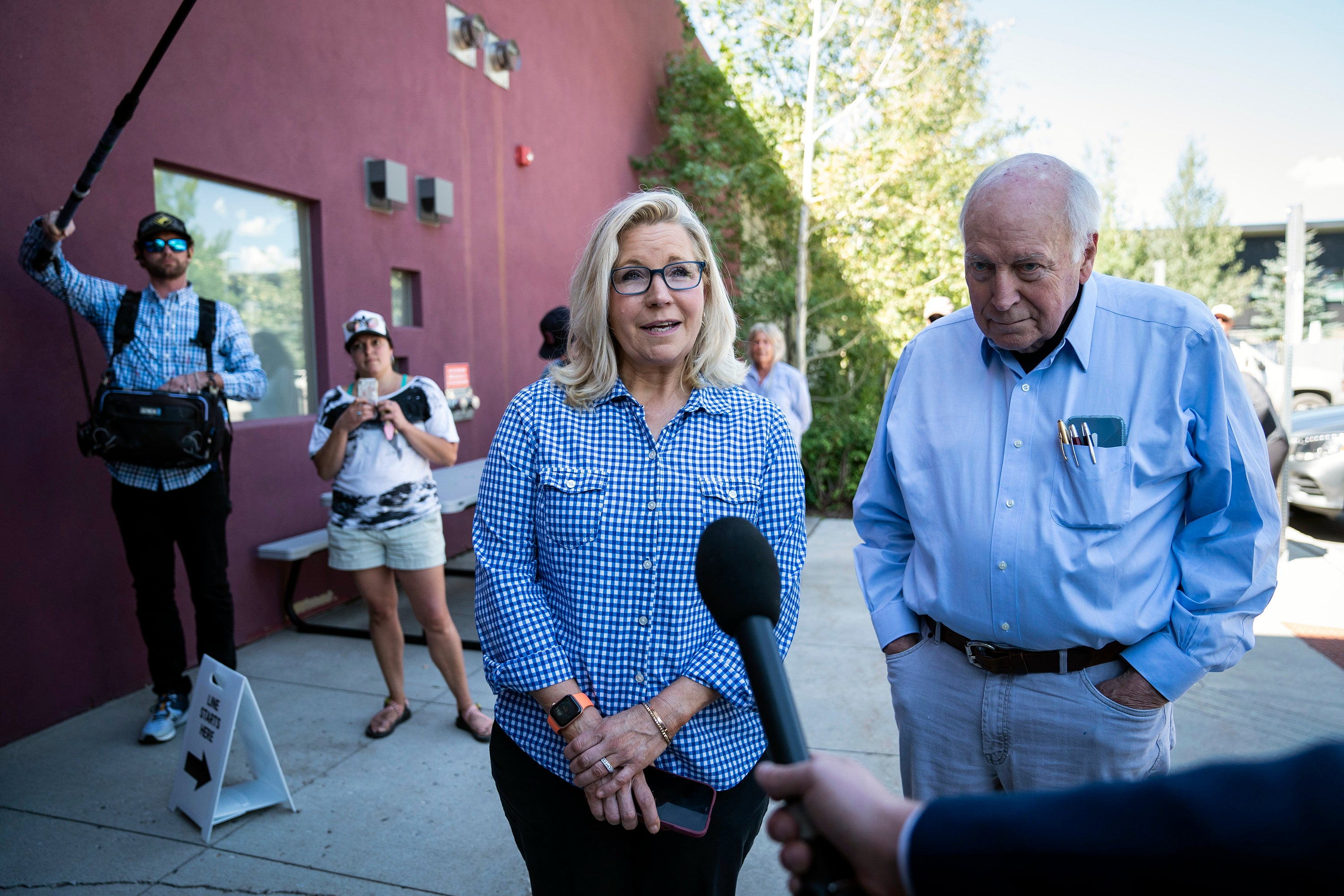Dick Cheney, the former vice president who is largely credited with becoming one of the most influential vice presidents in modern American history, died Monday at the age of 84, his family announced.
Cheney died from complications related to pneumonia as well as cardiac and vascular disease, the family said. He battled cardiovascular disease much of his adult life, experiencing at least five heart attacks between 1978 and 2010 and undergoing a heart transplant in 2012.
“Dick Cheney was a great and good man who taught his children and grandchildren to love our country, and to live lives of courage, honor, love, kindness and fly fishing,” the statement from Cheney’s family read. “We are grateful beyond measure for all Dick Cheney did for our country. And we are blessed beyond measure to have loved and been loved by this noble giant of a man.”
Cheney, who served under former president George W. Bush, had a long political career marked by his steady and tenacious advocacy of policies that have become controversial – such as engineering the Gulf war in 1991, invading Iraq in 2003 and implementing the Patriot Act.
In a statement, Bush called Cheney’s death “a loss to the nation” and said he would be remembered “among the finest public servants of his generation.”
“Dick was a calm and steady presence in the White House amid great national challenges. I counted on him for his honest, forthright counsel, and he never failed to give his best,” Bush said. “He held to his convictions and prioritized the freedom and security of the American people. For those two terms in office, and throughout his remarkable career, Dick Cheney’s service always reflected credit on the country he loved.”
Cheney’s political career began in his late twenties after experiencing a challenging early adulthood – dropping out of Yale University and being arrested twice for DUI.
After marrying his wife, Lynne Vincent, in 1964 and welcoming his first daughter, future Representative Liz Cheney, in 1966, Cheney began working as a congressional aide and moved to Washington, D.C.
Over the course of four decades, Cheney served under four Republican administrations, working as a White House staffer under Richard Nixon, White House chief of staff under Gerald Ford, secretary of defense under George H. W. Bush and eventually vice president for George W. Bush.
Cheney also served in the House of Representatives for 10 years, representing Wyoming’s single congressional district.
In 2018, Cheney’s life and ascent to power were detailed in the Adam McKay movie Vice, with Christian Bale assuming the title role in an Academy Award-nominated performance.

Throughout his tenure, Cheney displayed an impressive skill set rarely seen in politics – engineering policy behind the scenes while remaining out of the spotlight and refusing to give in to fanfare.
His first major impact on U.S. foreign policy arose during his time as defense secretary, when he directed Operation Desert Storm to evict Iraqi troops from Kuwait.
But Cheney is perhaps most well remembered for his influence on U.S. foreign policy after the September 11 attacks.
John Bolton, the former national security adviser, praised Cheney as a “principled Reaganite conservative” and one of the “few men” who have “shaped American foreign policy with unwavering conviction and clarity.”
Cheney played a vital role in advocating for the U.S. invasion of Iraq in 2003, falsely claiming Iraqi President Saddam Hussein had launched a program to create weapons of mass destruction and pushed the false notion that Hussein had ties to Al-Qaeda.
The Iraq war, which ended in 2011, led to the deaths of more than 200,000 civilians and 4,400 U.S. service members.

Cheney’s advocacy for the invasion of Iraq made him one of the most polarizing figures of the time. He left office with an approval rating of 31 percent, according to the Pew Research Center. His reputation in the administration even earned him the nickname “Darth Vader.”
But Cheney stood by his decision, telling the Senate Intelligence Committee in 2014: “I would do it again in a minute,” referring to the invasion.
Even two decades later, Cheney’s known influence on the Iraq war has defined his reputation.
“Dick Cheney was a giant in American politics, and his impact will be felt for decades,” Republican Rep. Mike Collins wrote.
“President George W. Bush relied on Dick Cheney for virtually everything,” Republican Senator Ted Cruz said on Fox News Tuesday morning.
Disgraced congressman George Santos wrote, “Dick Cheney will meet his maker and will have lots of explaining to do. I wish his family well all things considered, but I haven’t and won’t ever shed a tear for a war criminal of his ilk.”

Despite rarely being seen in public in his later years, Cheney appeared in a political advertisement for his daughter, Liz, in 2022, in which he decried President Donald Trump.
“In our nation’s 246-year history, there has never been an individual who is a greater threat to our republic than Donald Trump,” Cheney said, calling the now-president a “coward.”
“A real man wouldn’t lie to his supporters. He lost his election, and he lost big. I know it. He knows it, and deep down, I think most Republicans know,” Cheney said in the advertisement.
According to Liz, Cheney endorsed former Vice President Kamala Harris ahead of the 2024 presidential election.
Cheney is survived by his wife, Lynne; his daughters, Liz and Mary; and seven grandchildren.







